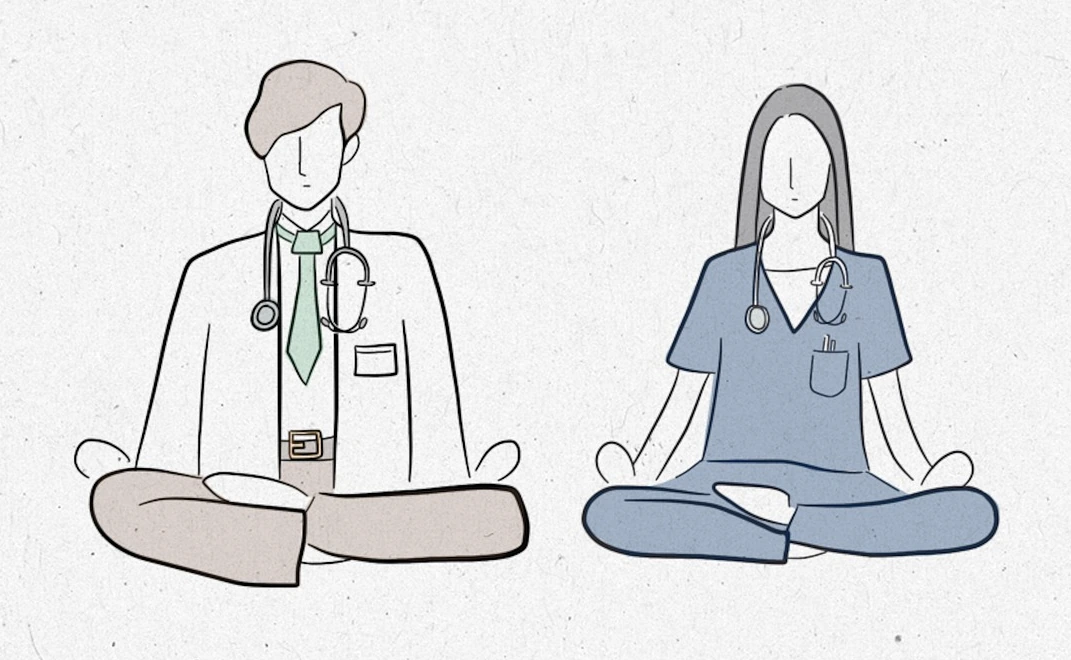This post may contain affiliate links and ads in which we may earn a small percentage of purchases.
Table of Contents
Let’s face it, most people and working professionals in this day in age (the year 2023, in the U.S. you know, just in case things change in the future) have heard of meditation or have been exposed to the practice. However, I still think there is a disconnect between understanding what it is exactly, and how it can benefit. Even in myself, I’m not perfect in this area, not even close! But through practice, curiosity, reading, and writing, I’ve gained a better understanding of the process and notice the changes, immediate and long term.
Why Are Professionals Embracing A Meditative Practice?
Increased Awareness and Accessibility
There’s been a significant rise in the general awareness about mental health and self-care practices. Meditation, once considered a niche or spiritual practice, has become more mainstream, thanks in part to its promotion in popular media, the availability of numerous apps, and endorsements by public figures and celebrities.
Scientific Validation
A growing body of scientific research supports the benefits of meditation. Studies have shown that meditation can reduce stress, improve focus, enhance creativity, and even improve physical health. This evidence-based approach appeals to professionals who value data and concrete results.
Effect of Yoga on Stress Management in Healthcare Professionals
This systematic review explored the effects of yogic practices, including meditation, on stress management among healthcare professionals. It concluded that yoga helps manage stress, improves physical, emotional, and mental health, and can prevent various health issues, enhancing sleep quality and reducing fatigue. This indicates the broader acceptance and effectiveness of meditation and related practices in professional settings.
Source: https://dx.doi.org/10.9734/jocamr/2023/v22i3459
A stainless-steel acupuncture pen and gua sha set.
 View Product
View Product
Mindfulness Meditation Apps to Buffer Workplace Technostress and Information Overload
An exploratory study investigated how app-based Mindfulness Meditation (MM) can assist individuals in dealing with the negative effects of Information and Communication Technologies (ICTs) in the workplace. The preliminary study involving an IT employee suggested that such apps could be effective, indicating a growing trend of digital solutions for stress management in professional environments.
Source: https://dx.doi.org/10.1002/pra2.373
Tai Chi and Workplace Wellness for Health Care Workers: A Systematic Review
This study performed a systematic review of the scientific literature to explore the relationship between Tai Chi practice and wellness among healthcare workers. It found that Tai Chi is gaining consensus due to its beneficial effects on both body and mind. The review suggests Tai Chi as a potential tool for reducing work-related stress among healthcare professionals. However, it calls for further research to gain robust evidence of its efficacy.
Source: https://dx.doi.org/10.3390/ijerph17010343

Tai Chi Workplace Program for Improving Musculoskeletal Fitness Among Female Computer Users
This study investigated the effects of a Tai Chi workplace intervention on musculoskeletal fitness and psychological well-being among female university employees who use computers extensively. Significant improvements in physiological and psychological measures were observed, suggesting Tai Chi’s potential as an economic, effective, and convenient workplace intervention.
Source: https://dx.doi.org/10.3233/WOR-2009-0931
High-Stress Work Environments
The modern workplace can be highly stressful, with long hours, constant connectivity, and high expectations. Professionals are increasingly seeking effective ways to manage stress, avoid burnout, and maintain a healthy work-life balance. Meditation offers a practical tool to achieve these goals.
Focus on Productivity and Performance
Meditation is known to improve concentration, decision-making, and problem-solving skills. In a competitive professional environment, these benefits can translate into better performance and career advancement.
Emphasis on Emotional Intelligence
There’s a growing recognition of the importance of emotional intelligence in the workplace. Meditation can enhance self-awareness, empathy, and emotional regulation, which are key components of emotional intelligence.

Globalization and Cultural Exchange
As the world becomes more interconnected, there’s been a greater exchange of cultural practices. Meditation, with its roots in various Eastern traditions, has been one of the practices that have found a global audience.
Workplace Wellness Programs
Many organizations now recognize the importance of employee well-being and have started incorporating wellness programs that include meditation and mindfulness training. This institutional support has made meditation more accessible to professionals.
Need for Mental Health Solutions
With the rise in awareness of mental health issues, professionals are looking for effective, non-pharmaceutical methods to manage symptoms of anxiety, depression, and stress. Meditation offers a low-cost, low-risk option.
Digital Detox and Mindfulness
In an age of constant digital connectivity, meditation provides a much-needed break. It offers a way to unplug, practice mindfulness, and reduce the negative effects of digital overload.
Personal Development and Self-Exploration
Finally, many professionals turn to meditation as a means of personal growth and self-exploration, seeking a deeper understanding of themselves and their place in the world.
In summary, the combination of scientific backing, a greater focus on mental health and well-being, and the pressures of modern professional life have all contributed to the rising popularity of meditation among working professionals.
Medical Disclaimer: This article is for informational and educational purposes only and is not a substitute for professional medical advice, diagnosis, or treatment. Always consult a qualified healthcare provider with any questions about a medical condition or treatment.




